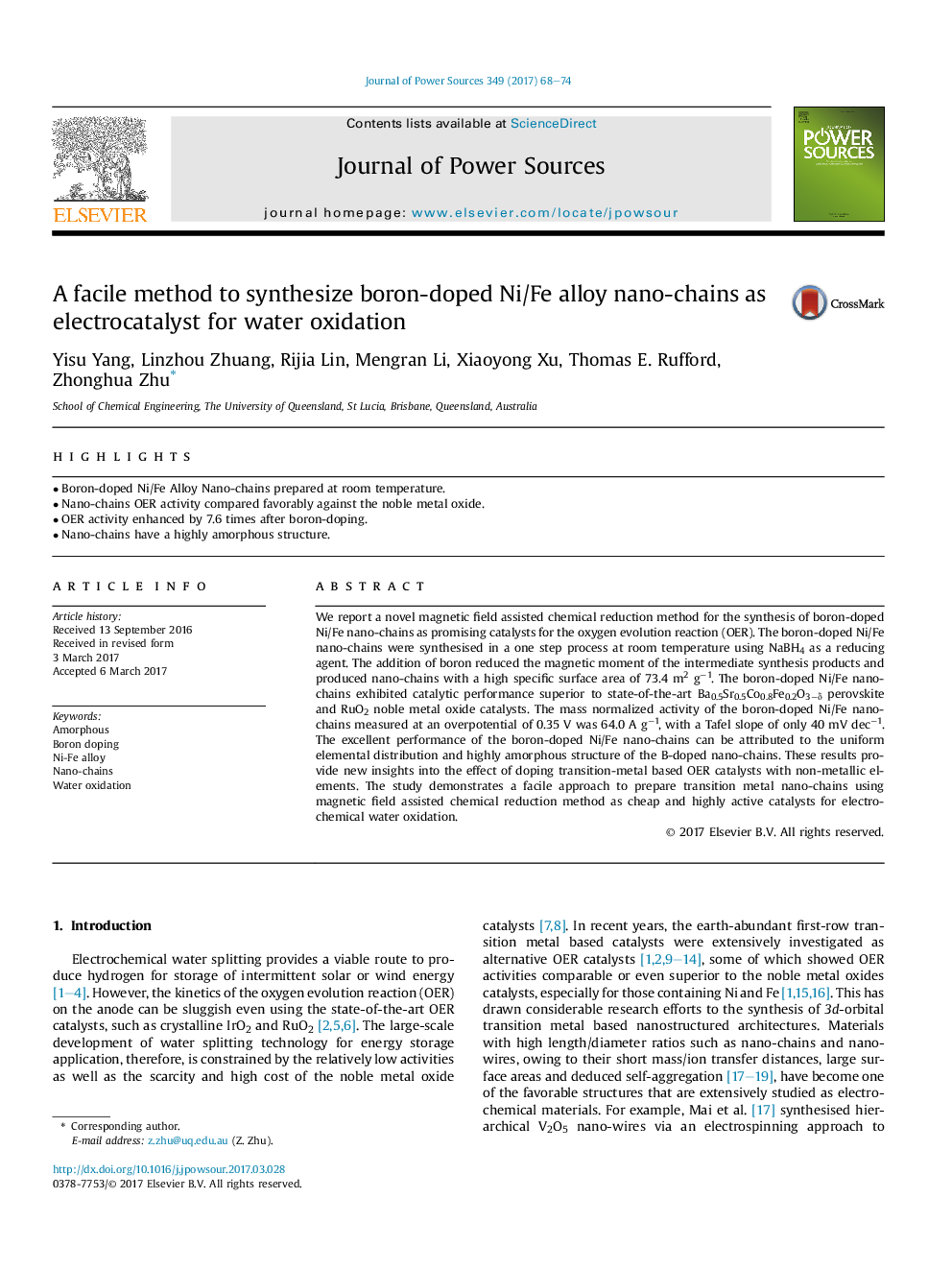| Article ID | Journal | Published Year | Pages | File Type |
|---|---|---|---|---|
| 5149538 | Journal of Power Sources | 2017 | 7 Pages |
Abstract
We report a novel magnetic field assisted chemical reduction method for the synthesis of boron-doped Ni/Fe nano-chains as promising catalysts for the oxygen evolution reaction (OER). The boron-doped Ni/Fe nano-chains were synthesised in a one step process at room temperature using NaBH4 as a reducing agent. The addition of boron reduced the magnetic moment of the intermediate synthesis products and produced nano-chains with a high specific surface area of 73.4 m2 gâ1. The boron-doped Ni/Fe nano-chains exhibited catalytic performance superior to state-of-the-art Ba0.5Sr0.5Co0.8Fe0.2O3âδ perovskite and RuO2 noble metal oxide catalysts. The mass normalized activity of the boron-doped Ni/Fe nano-chains measured at an overpotential of 0.35 V was 64.0 A gâ1, with a Tafel slope of only 40 mV decâ1. The excellent performance of the boron-doped Ni/Fe nano-chains can be attributed to the uniform elemental distribution and highly amorphous structure of the B-doped nano-chains. These results provide new insights into the effect of doping transition-metal based OER catalysts with non-metallic elements. The study demonstrates a facile approach to prepare transition metal nano-chains using magnetic field assisted chemical reduction method as cheap and highly active catalysts for electrochemical water oxidation.
Related Topics
Physical Sciences and Engineering
Chemistry
Electrochemistry
Authors
Yisu Yang, Linzhou Zhuang, Rijia Lin, Mengran Li, Xiaoyong Xu, Thomas E. Rufford, Zhonghua Zhu,
